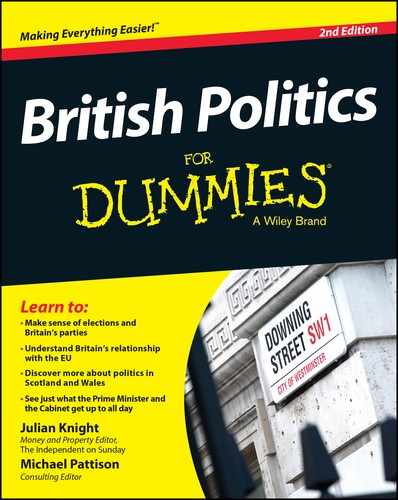Book Description
Your updated and revised guide to British politicsSo, you want to be knowledgeable about British politics but don't know where to start? You've come to the right place! British Politics For Dummies is your essential guide to understanding even the trickiest questions surrounding politics in the UK. In no time, you'll have the confidence to discuss the ins and outs of past and present elections, political leaders, parties and ideologies.
Packed with understandable information on the origins, history and structure of the UK parliamentary system, British Politics For Dummies offers a fascinating glimpse into the rollercoaster world of politics. Explaining everything from key political ideologies and the spread of democracy to the current election process and the differences between political parties, this hands-on, friendly guide is an ideal companion to British politics and elections.
- Includes expanded coverage of coalition governments, devolution and independence efforts
- Provides updated information on UKIP and Britain's place in Europe
- Serves as a helpful guide to elections and British political parties—electoral systems, voting behaviour and trends and the role of pressure groups and the media
- Offers a fascinating examination of British politics on the world stage
Whether you want to get to grips with British politics and government or build your knowledge beyond the basics, this updated edition of British Politics For Dummies is the place to start.
